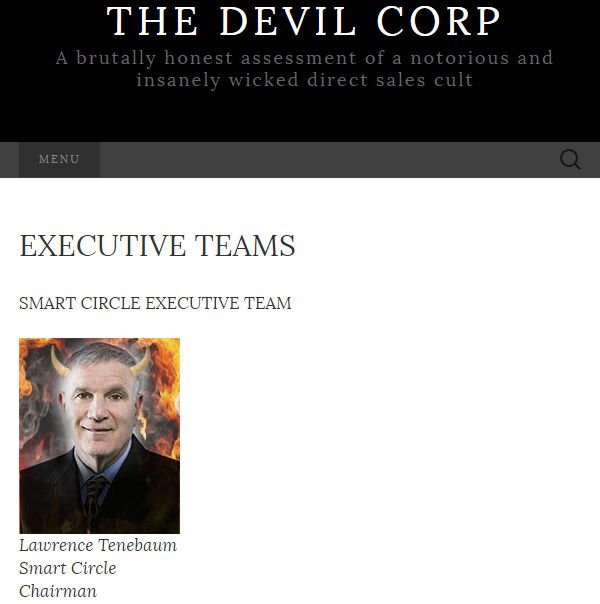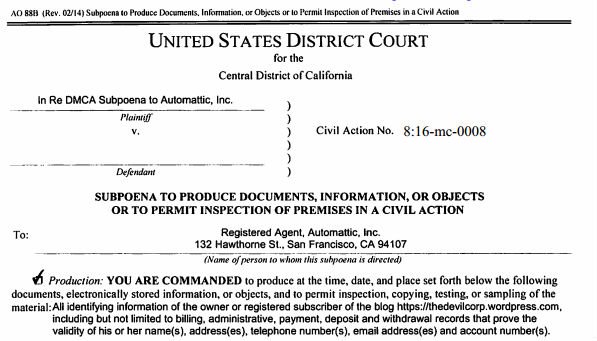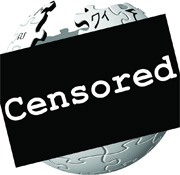High IQ Countries Have Less Software Piracy, Research Finds
dimanche 19 juin 2016 à 11:58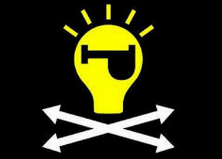 There are hundreds of reasons why people may turn to piracy. A financial motive is often mentioned, as well as lacking legal alternatives.
There are hundreds of reasons why people may turn to piracy. A financial motive is often mentioned, as well as lacking legal alternatives.
A new study from a group of researchers now suggests that national intelligence can also be added to the list.
The researchers report their findings in a paper titled “Intelligence and Crime: A novel evidence for software piracy,” which offers some intriguing insights.
In a rather straightforward analysis, the research examines the link between national IQ scores and local software piracy rates, which are reported by the Business Software Alliance. As can be seen below, there’s a trend indicating that countries with a higher IQ have lower software rates.
“We find that intelligence has statistically significant negative impact on piracy rates,” the researchers confirm in their paper, drawing a causal conclusion.
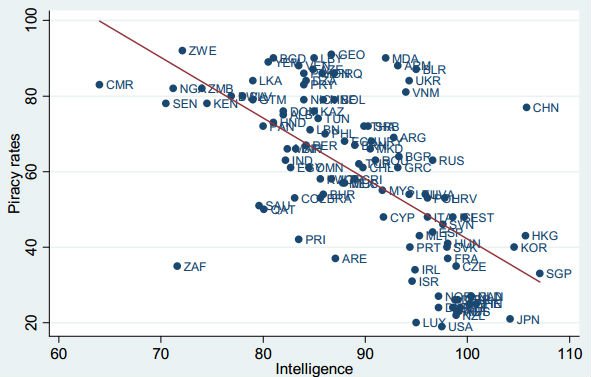
There are some notable outliers, such as China, where piracy rates and IQ are both relatively high. On the other end of the spectrum we find South Africa, with a low national IQ as well as low piracy rates.
The general trend, however, shows a direct relation between a country’s average IQ and the local software piracy rates.
“After controlling for the potential effect of outlier nations in the sample, software piracy rate declines by about 5.3 percentage points if national IQ increases by 10 points,” the researchers note.
To rule out the possibility that the link is caused by external factors, the researchers carried out robustness tests with various variables including the strength of IP enforcement, political factors, and economic development. However, even after these controls the link remained intact.
Luckily for copyright holders, ‘dumb’ countries are not ‘doomed’ by definition. If the ruling elite is smart enough, they can still lower piracy rates.
“[The results] should not be taken as universal evidence that society with higher intelligent quotient is a requirement to alleviate software piracy,” the researchers write.
“Our findings indicate that if ruling elite enforces policies to decrease software piracy, intelligence provides a credible proxy of the degree of consent of such policies.”
Interestingly, if these results hold up, with a bit of luck software piracy may solve itself in the long run.
Previous research found that software piracy increases literacy in African countries, which may in turn raise the national IQ, which will then lower piracy rates. Or… will that lower literacy again?
The full paper is available here (pdf).
Source: TF, for the latest info on copyright, file-sharing, torrent sites and ANONYMOUS VPN services.
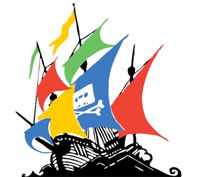 In an effort to keep people away from pirate sites, copyright holders are overloading Google with DMCA takedown notices.
In an effort to keep people away from pirate sites, copyright holders are overloading Google with DMCA takedown notices.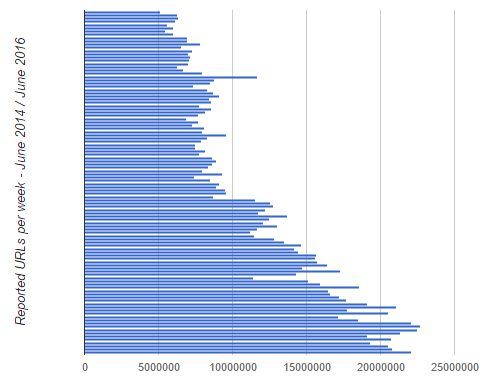
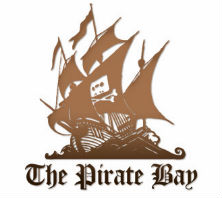 In 2013, anti-piracy prosecutor Fredrik Ingblad filed a motion targeting two of The Pirate Bay’s oldest domains, ThePirateBay.se and PirateBay.se.
In 2013, anti-piracy prosecutor Fredrik Ingblad filed a motion targeting two of The Pirate Bay’s oldest domains, ThePirateBay.se and PirateBay.se. As one of the leading blog platforms, WordPress.com receives thousands of DMCA takedown requests every year.
As one of the leading blog platforms, WordPress.com receives thousands of DMCA takedown requests every year. 